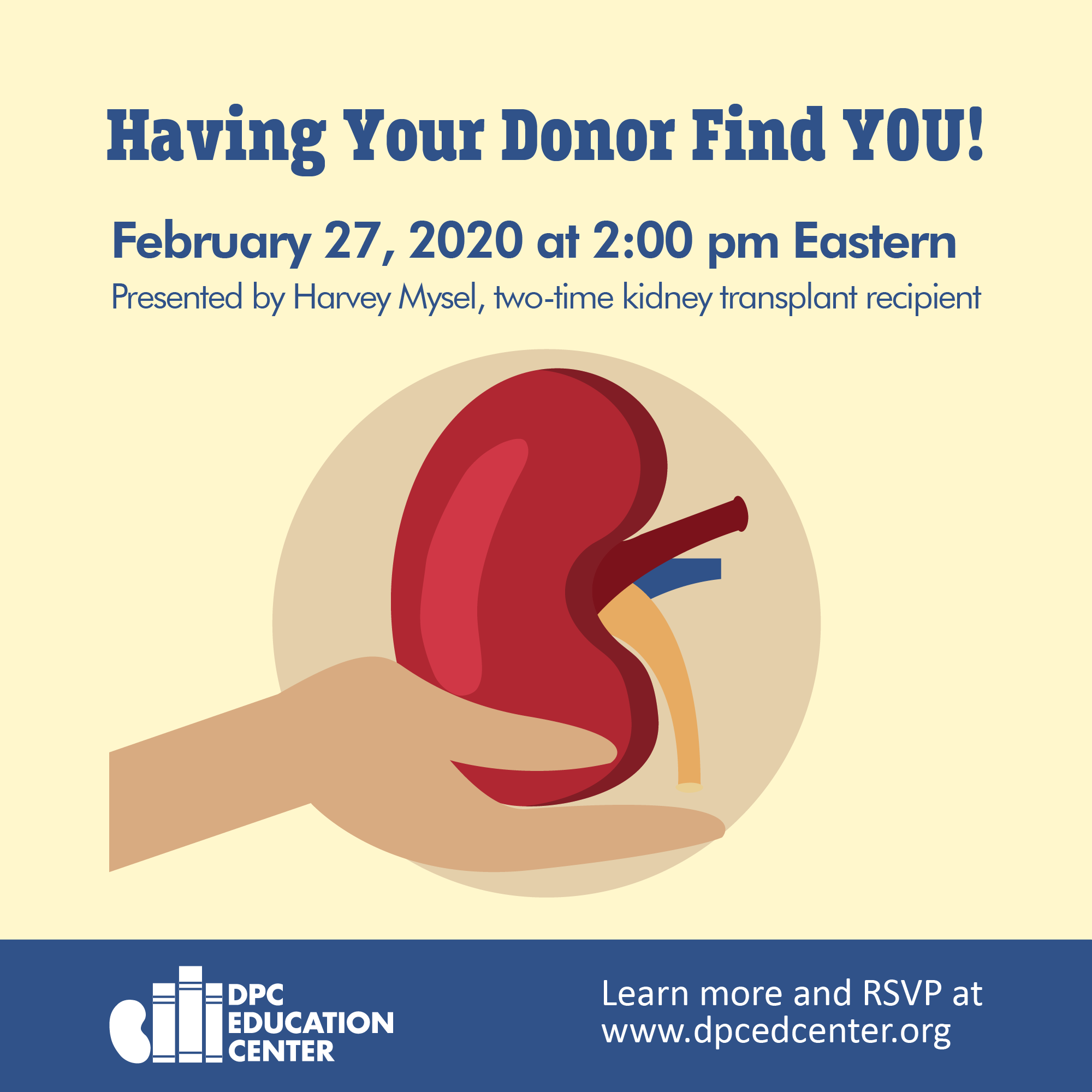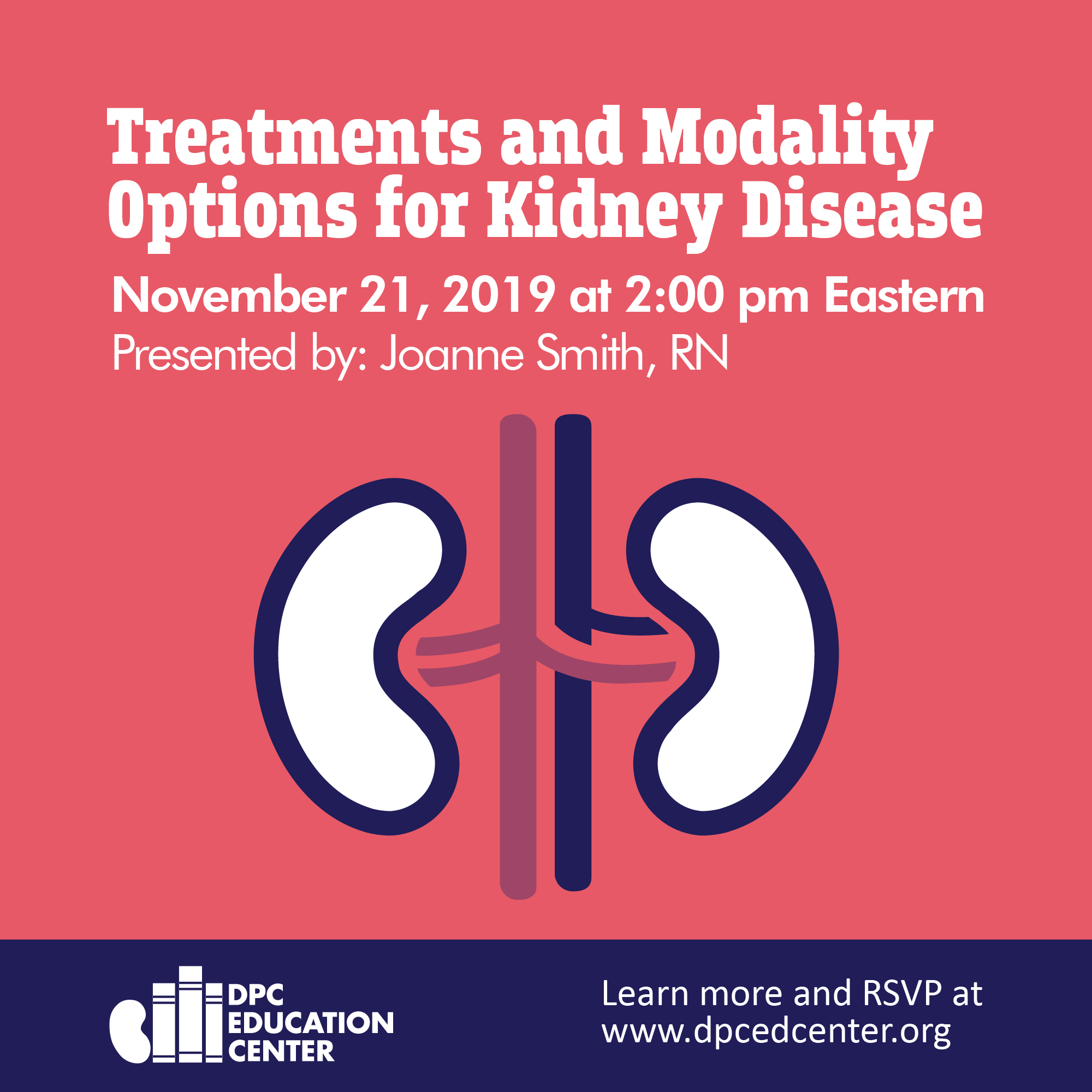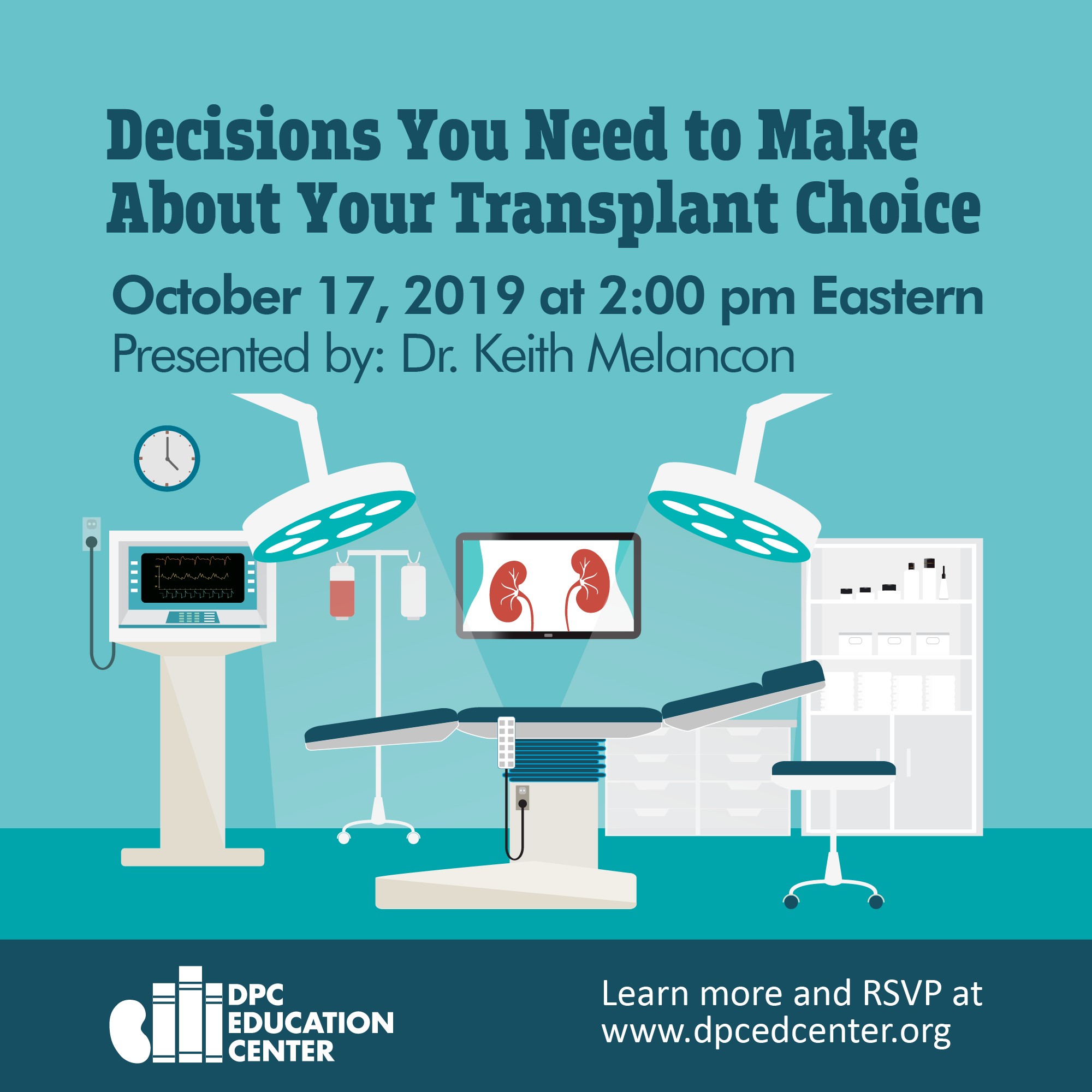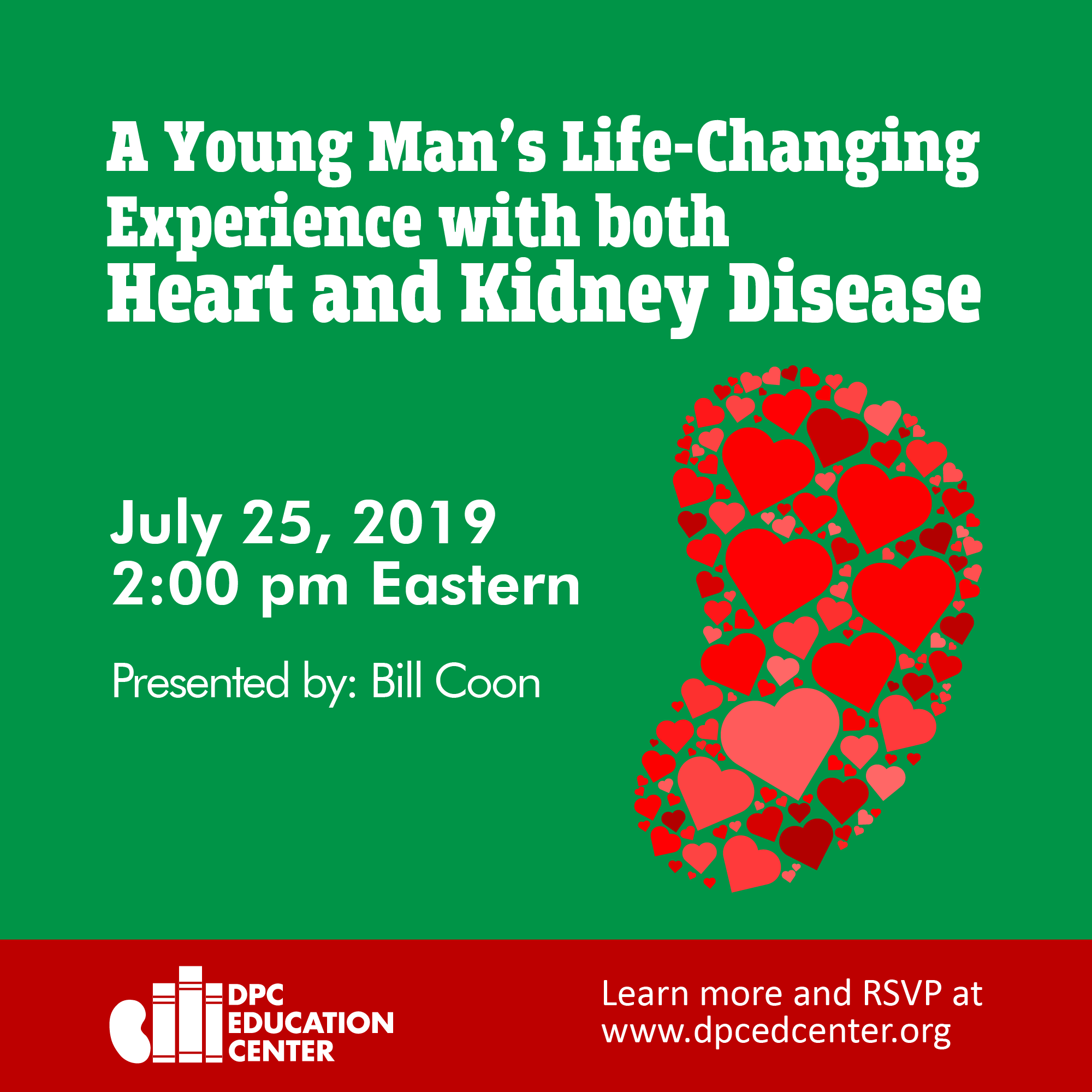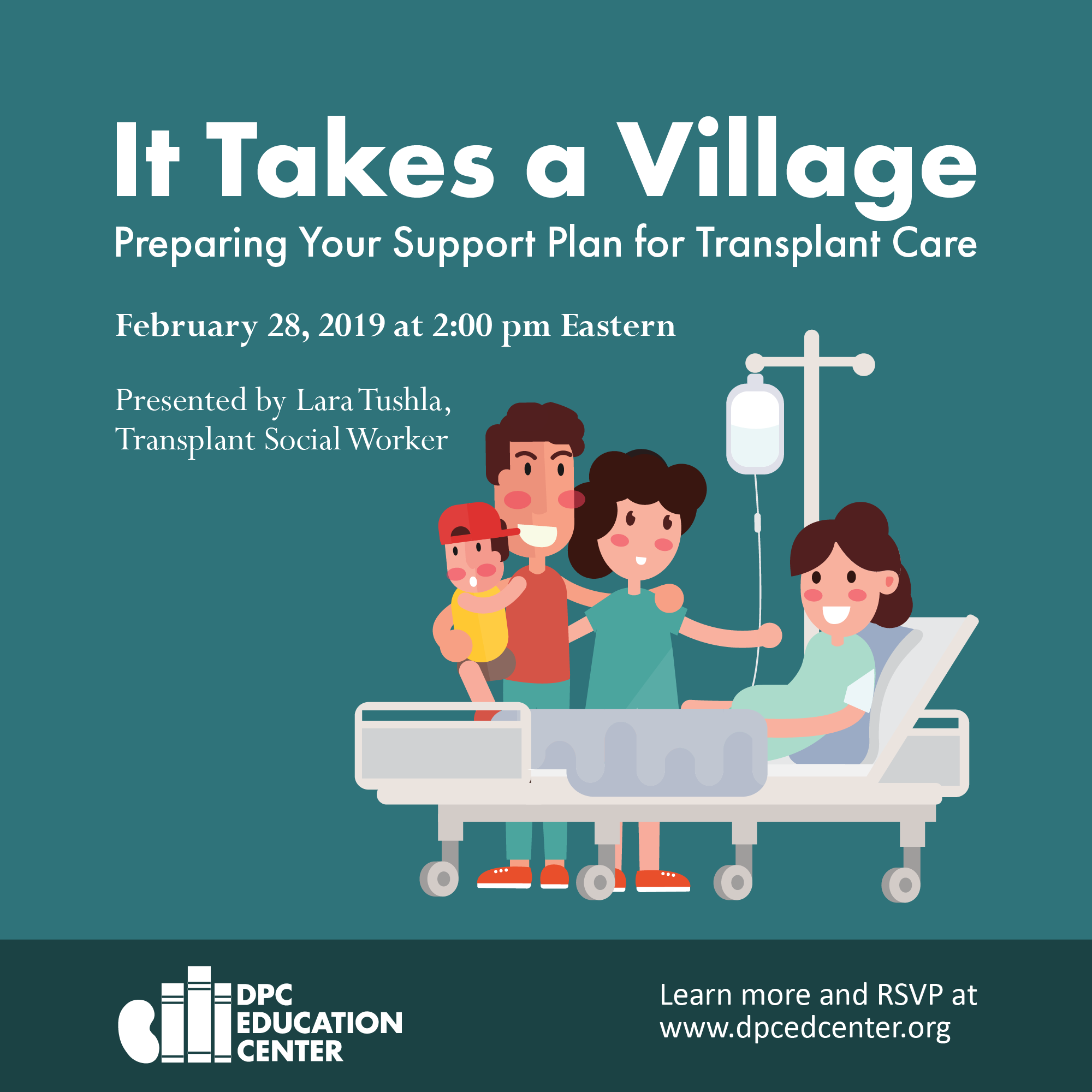Having Your Donor Find YOU!
During this webinar the following points will be covered: 1) Learn about the benefits of receiving a kidney from a living donor, 2) Learn how to talk to others about kidney donation, 3) You don’t need to “ask” someone to donate, it’s all about “telling your story” and 4) Join us to develop a plan for a successful living kidney transplant experience.

